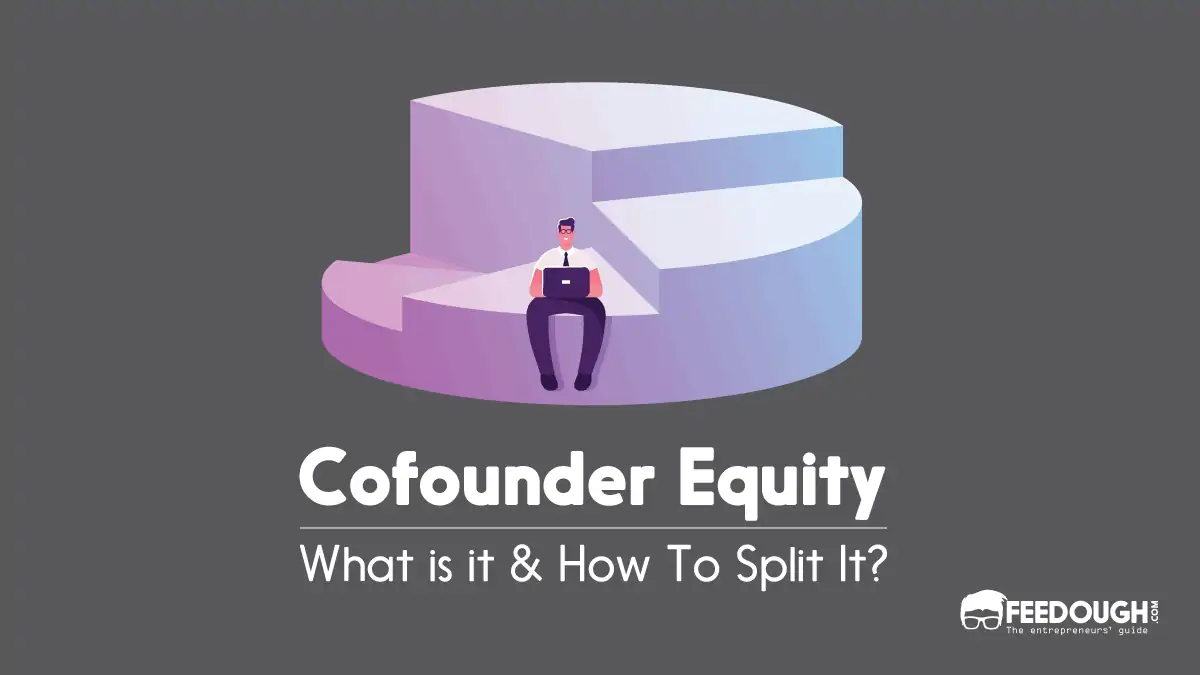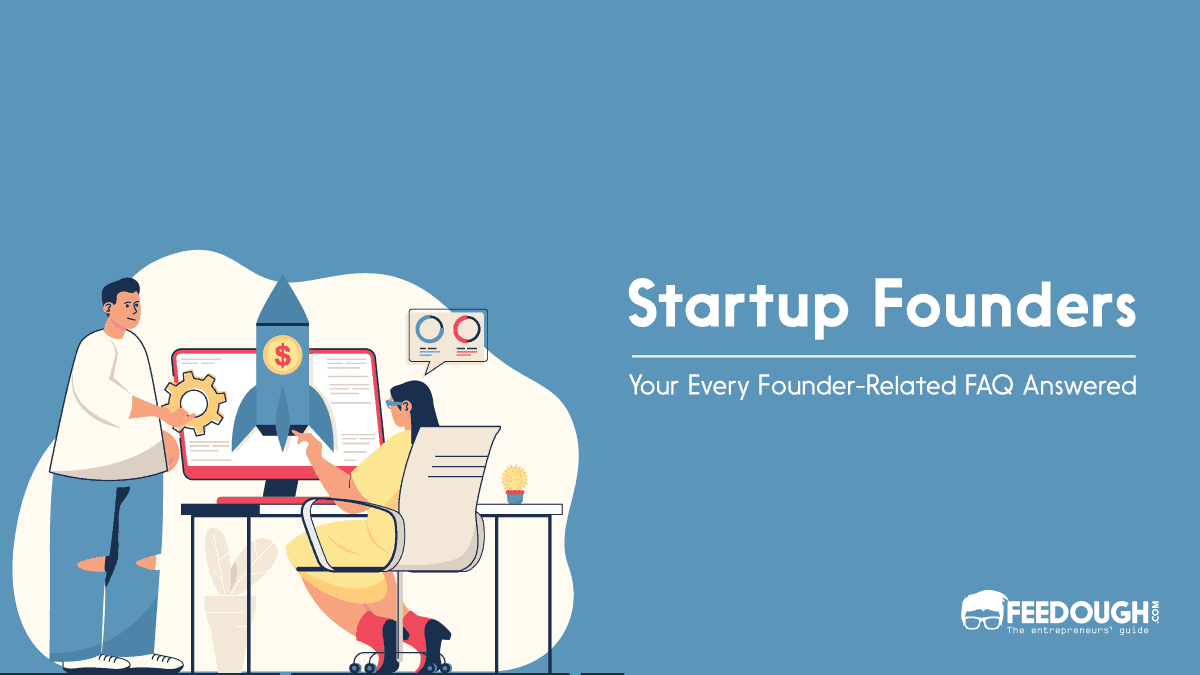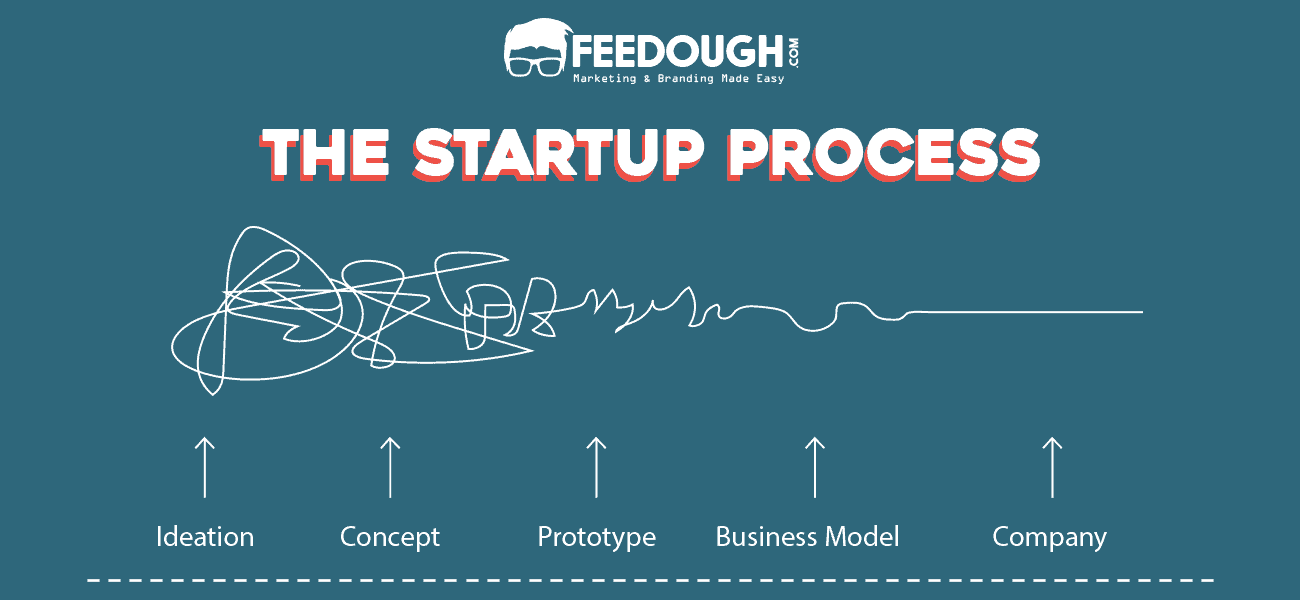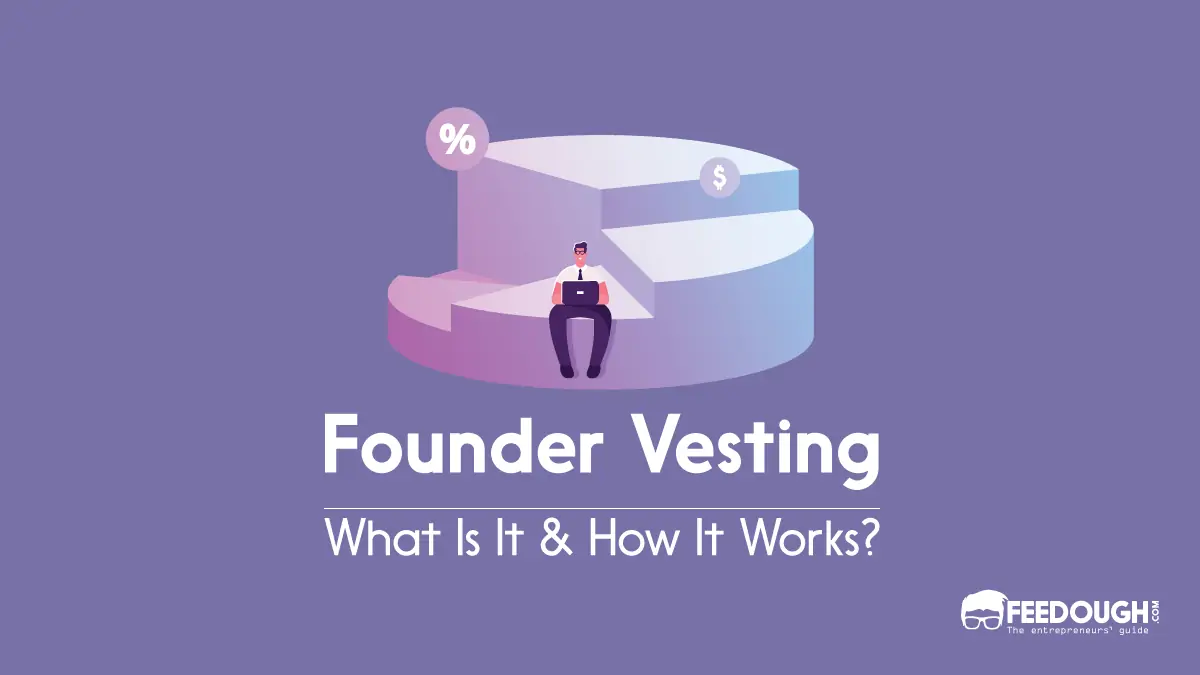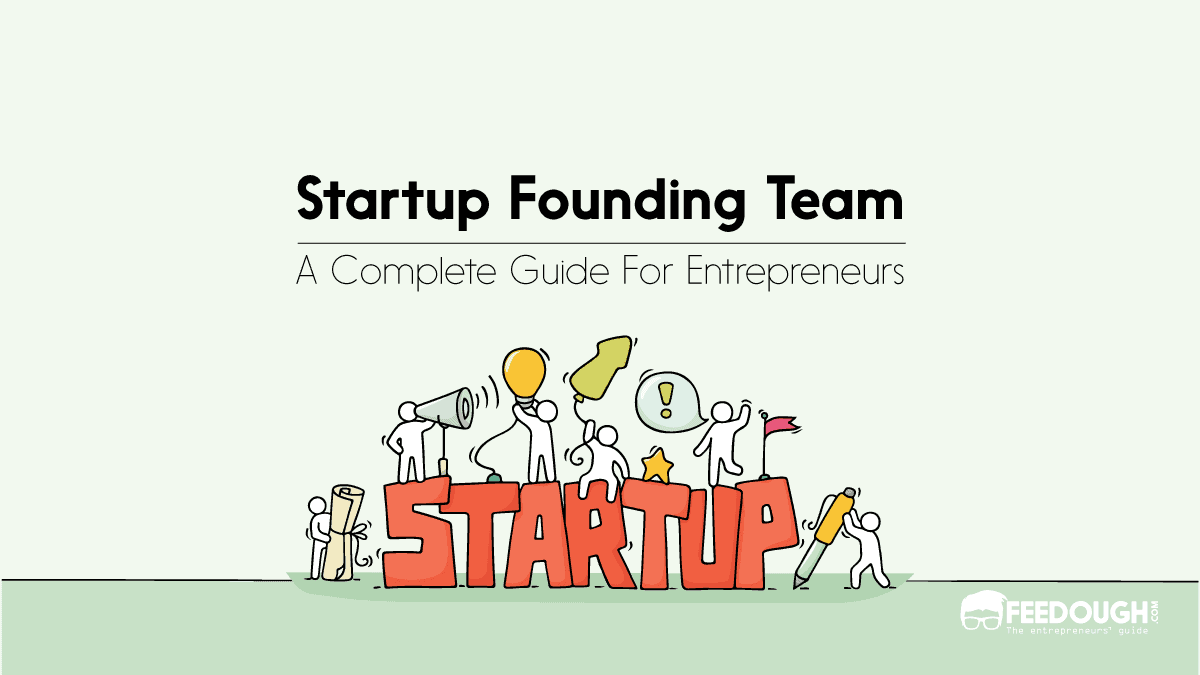So you’ve got an idea to start a company, and maybe your best friend is coming along for the ride.
One problem: Who gets what equity?
We know that there are no easy answers to the cofounder equity split because every business has different needs, goals and circumstances. However, based on our experience advising startups — particularly companies with multiple cofounders — here are some best practices when it comes to splitting equity among cofounders.
But first, you need to understand what cofounder equity is and what all it constitutes.
What Is Cofounder Equity?
Cofounder equity is the ownership stake each cofounder has in a business. It’s generally expressed as a percentage of the company and represents how much of the pie each person brings to the table.
This allocation will be on paper only on day one, but after you get funding or generate revenue, these equity stakes will convert into cold hard cash through a capital call or sale.
In short, this is how you split up the value of your business among the people who helped create it.
The Purpose of Allocating Cofounder Equity
The primary reason to allocate cofounder equity is to appropriately reward what each person in the founding team brings to the table. Whether that’s money, time and energy, relationships or expertise in a certain area, equity allocation is the key to avoiding disputes down the road.
Equity acts as both an incentive and a safety net if things don’t go according to plan. Without it, founders would have no financial motivation to stick around when times get tough (or flee if things are looking up). And quite simply, the greater the equity stake a founder has in a company, the deeper their interests will be tied to its success.
Equal Equity Split – Or Not?
Not every member of a founding team brings the same material benefits to the table. For example, one cofounder may be bringing a product and two years of hard work to the table, while another member might only bring an idea and two months of planning.
This is why it’s we find founders wary of splitting equity equally at first. They could come up with reasons like:
- I came up with the startup idea.
- I’m the one who has to bring in revenue to pay the bills.
- This is my baby, and I should have more equity.
All of these statements can be argued to be valid and could be used as reasons for getting a bigger slice of the pie. But the problem with this approach is that the founder doesn’t think long term when using such arguments.
A caveat is that there does need to be some balance at the beginning. If everything is skewed too far one way or another, it can cause problems down the road.
For example, if one cofounder has 90 percent of the equity and the other 10 percent, then it’s very likely that founder number two will feel they are being “used.” Not a good way to start a company.
So, how should you split up equity? There are a number of ways, but there are some important aspects about startups that you should understand first.
- A startup isn’t built in a day: If you’ve been working for five months before your cofounder joined, it doesn’t make much difference as a company takes five to ten years to build and provide value. You need committed cofounders that will only stick if you fairly split equity.
- Different skill sets are needed at different stages: Founders bring different skills to the table, and each one is essential at a certain stage of your startup’s development. For example, you may do well with only an idea in the early days but need more help as soon as you’re ready to start building it out. So, you might need to rethink about keeping a larger stake just because you got the idea.
- Cofounders are not employees: Cofounders aren’t employees and you should avoid treating them like one. The equity isn’t divided based on how many hours they work but on what value they bring to the company. You should not divide equity considering the founder as an employee. The person could be vital for marketing, or they could bring in the required early capital without which you can’t even start.
- You would need motivated partners: The more stake one gets, the more incentive they have to stick around. It’s a great way to keep cofounders motivated.
How To Split Cofounder Equity?
The best time to think about splitting equity among cofounders is before the team forms, but how you do it can vary based on many variables, including the company stage, the structure of your business and each founder’s role. However, there are some important factors that you should consider, like :
- The stage of your company,
- The relative benefits and contributions each founder bring to the table,
- Founder salary,
- Options pool.
But before you start discussing the equity split with your cofounder(s), know that it’s often better to err on the side of caution and split equity equally until there is reason to do otherwise. This way, everyone has buy-in, avoids any resentment and also makes it easier for you to raise money from investors.
The Company Stage
The early stages of a company can be tumultuous, and it’s difficult to predict who will make a good contribution. Things change from week to week, and it’s not uncommon for one cofounder to take a lead role in one area, while another is more able to handle the day-to-day tasks.
Consequently, it can make sense to split the equity equally based on this fluidity of roles at the early stages – as when you’re just getting started, every cofounder needs to wear many hats and shoulder a variety of responsibilities.
Later on, however, as your company progresses through its development cycle, the equity might get split unequally depending on the contributions of each cofounder.
So, the equity split may be different for partners joining at different stages of your startup.
Founder Contributions
It can be difficult to judge how much equity a cofounder should receive if their role isn’t clearly defined. It’s best to wait until after you start working together or have a clear idea of each founder’s responsibilities before deciding on a fair, equitable split.
You want to think about the value that each cofounder brings to the table. To do that, consider the following questions about each of your partners:
- What is their role in the company?
- How much time will they be able to contribute to the startup’s vision, mission and goals?
- How much did they invest monetarily in the startup?
- Did they contribute any IP to the startup?
- What non-monetary value do they provide to the startup?
- Do they have any expertise that could help build a successful business?
- Have they worked with startups before or are they newbies?
- Do they charge a salary?
- Do they have any other commitments that could affect their availability and time spent on your company?
Besides this, a person might deserve equal or larger equity share if –
- They are the one who executes the idea into an actual business.
- Brings in the customers during the initial and growth stages.
- Contribute priority resources to the startup.
Besides the non-monetary investments, the amount of money that each founder invests is another vital factor. If all goes well, this initial investment will translate into a large chunk of capital down the road and could be critical in supporting the company and paying its bills.
If you’re not sure exactly how to figure out who should get what, it’s possible to set up a simple spreadsheet and list the contributions of each cofounder.
Founder | Cash Contribution | Non-Cash Contribution |
|---|---|---|
John | $10,000 | Key developer |
Matt | $50,000 | Big name, Marketing |
Jane | 0 | Code IP, key developer |
But contributions should translate to actual growth, be it in product development, sales, number of customers, capital, user base, or subscribers.
For example, Dr Dre charged a huge chunk of Beats total stake (33%) for his contributions as a marketer as he was the key to the company’s success, even though he was not behind the disruptive technology.
You should carefully consider who brings what to the table and, if necessary, make adjustments to the equity split accordingly.
If one cofounder brings a lot of money to the table but is not committed to their time and effort, compare their monetary investment with efforts of other active partners and use this information when allocating equity.
But always think long term. A marketing founder’s expertise may not be needed during the product development stage, but it would be a huge plus later on.
Remember – do not give away equity for nothing – no matter if the cofounder is your best friend, because it will cost you money and control in the long run.
Founder Salary
Sometimes, founders who are unable to work full-time due to financial commitments need some compensation from the company to make up the difference. In this case, they might draw a salary based on market rates for people with their skills and experience, but usually at a fraction of what they would normally ask for.
Since startups have limited cash in their beginning stages, the salary often comes at the cost of equity shares.
However, founder salaries don’t play and should not play a big role in how equity is split. This is because no one gets paid to be a founder. They get paid for the jobs they perform. If you plan to reduce your cofounder’s equity substantially just because he is taking a salary, he might lose his motivation as a founder and come up with excuses for not doing his job like an employee.
The Options Pool
An options pool is a group of shares that are set aside for other employees who, in the future, could become valuable to the company.
It’s good practice to split up your options pool evenly among all cofounders – especially if you’re still early on in your startup’s development. So, usually, founders don’t divide a hundred percent of the equity share amongst themselves.
It’s more common to build up the options pool over time and award people with equity when they join your company or become essential to its growth.
For example, if you only have three cofounders and you give each 20% of the company’s shares, then an ideal options pool would be around 20% of the company.
Factors That Should Not Affect The Equity Split
While the equity you give to your cofounder may be impacted by other factors, such as their level of commitment and expertise, it should not be influenced by:
- Time spent on a project.
- Loyalty or friendship with one founder.
- Severance packages from previous jobs.
- Family connections.
- A founder’s personal financial situation.
The reason is that those things are irrelevant when it comes to the level of contribution, time spent or risk taken.
Cofounders are like puzzle pieces. Each one adds value to the team and makes it complete. People who don’t fit in the puzzle should not be given equity, to begin with.
The Documentation Required To Split Cofounders Equity
Oral communication isn’t enough when it comes to splitting equity. You will need to document the agreement in written form with an agreement. This is also known as a Shareholders Agreement.
A shareholders agreement is a contract that stipulates how shares will be split between cofounders and who will be responsible for what.
This agreement should include information like:
- The number of shares issued
- A capitalisation table
- The percentage of equity each founder holds.
- Founder vesting details
- Share transfer policies and restrictions
- Pre-emptive rights for shareholders
- Details on payments in the event of a company sale.
The terms of a Shareholders Agreement can be changed in the future, but it needs to be done fairly and transparently.
In most jurisdictions, this is the only legally binding agreement required from you as a founder.
Bottom-Line?
When it comes to cofounder equity split, don’t let the personal side of it affect your decisions. Split your cofounders’ equity fairly and evenly – regardless of how long they’ve been there, their career history or any other factor that is not relevant to what they bring to the table.
Moreover, don’t let the greed of ‘getting it all’ dominate your decision-making. You will end up damaging your startup and lose against the competition if you do so.
You should focus on the long term benefits of your startup and build a healthy relationship with your cofounders. The division of equity will be for the best if you assume nothing, communicate clearly and never forget it’s a team effort.
Go On, Tell Us What You Think!
Did we miss something? Come on! Tell us what you think of this article on cofounder equity split in the comments section.
A startup consultant, digital marketer, traveller, and philomath. Aashish has worked with over 20 startups and successfully helped them ideate, raise money, and succeed. When not working, he can be found hiking, camping, and stargazing.
